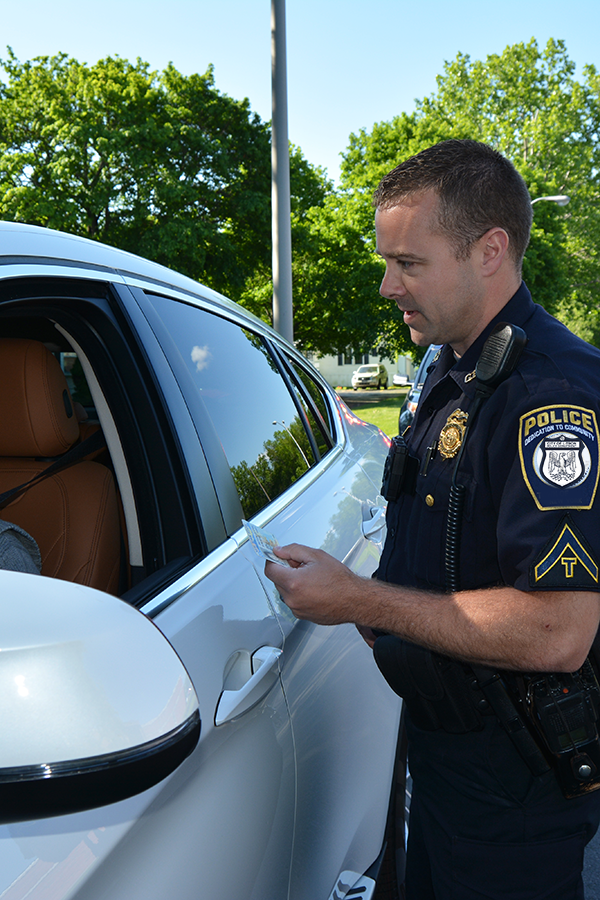A study reported in the Journal of Quantitative Criminology showed that body cameras may cut in half the use of force by police and reduce civilian complaints by 90%.
Body-worn cameras are gaining in popularity for Police Officers in the approximately 18,000 agencies around the country.
The U.S. Justice Department announced a plan to help Law Enforcement agencies purchase 50,000 body-worn cameras and provide the necessary training over a three-year period.
Many Police Departments seized the opportunity provided by the U.S. Justice Department’s $75 million in federal funding to purchase body-worn cameras and obtain the necessary training.
These agencies vary in size, from less than 100 Officers to more than 250. While federal funding has enabled them to get started, there are still a lot of gaps to be filled for the Body-Worn Camera (BWC) Pilot Partnership Program to achieve its objectives.
From a logistical standpoint, agencies are trying to calculate their needs.
How many body cameras should we purchase?
The optimal answer is “one per officer”.
Just like Police Officers are assigned their own radio, they should be given their own camera, if at all feasible.
This rule helps maintain a reliable chain of custody. In addition, having one Officer responsible for the care and maintenance of the device eliminates having it shuffled back and forth, which could lead to damage or loss.
How do I handle the data storage?
Data storage from body-cams has proven to be the biggest obstacle in achieving success.
With every Officer compiling footage from every shift, a Law Enforcement agency is inundated with data.
- The Duluth (MN) Police Department purchased 84 cameras for $5,000, but had difficulty funding the $78,000 in licensing and data storage costs for the first two years of the program.
- The New Orleans Police Department plans to purchase 350 body cameras, and expects to spend an additional $2 million to cover the cost of data storage for just a few years.
“That’s the biggest problem with this system…the cost of the storage,” commented Birmingham PD Captain William Brewer, head of the department’s Technology Division.
“The more you use them, the more storage it takes, and the costs increase,” said Mike Stenquist, assistant chief of the Salt Lake City Police Department, which has been using body-worn cameras since 2010. When they ran out of storage space on the department’s computer servers, they began burning the video to DVDs.
Is it safe to store digital evidence in the cloud?
Preserving the rights of the citizens is an essential part of Law Enforcement. Many cloud providers have more secure networks than an in-house server may have.
If you choose a public cloud for police video footage, make sure the data is secure, and also be clear about the costs for storing and retrieving data in the cloud.
Do we need to change our evidentiary procedures?
You’ll need to account for the chain of custody of digital media.
Videos can be uploaded to your evidence management system wirelessly or via a synchronizing dock. It still needs to be logged in and categorized.
The length of time you need to store the data varies according to the state law. A traffic citation or misdemeanor may not need to be kept as long as the evidence in a felony case.
What should our Officers be recording on the body cameras?
There’s a difference of opinion about whether or not the Officer should record his/her entire shift or simply switch on the device when encountering a situation or citizen.
The adoption of the technology is still so new that the debate between citizen privacy and public safety will continue until legal guidelines are established.
Do we need a full-time person to manage the data?
Depending on the size of your Law Enforcement agency, you may require a part-time person or an entire staff.
- If every Officer is recording an entire shift, then you’ll need more than one person to manage the video storage.
- If your agency is small and chooses to only record certain situations, you might find that someone on your staff can handle the duties.
We’ll continue to track the evolution of this emerging technology.
L-Tron works closely with the Law Enforcement community. Specializing in hardware for today’s squad car, our solutions have been implemented in thousands of municipalities across 40+ states over the last 14 years.
